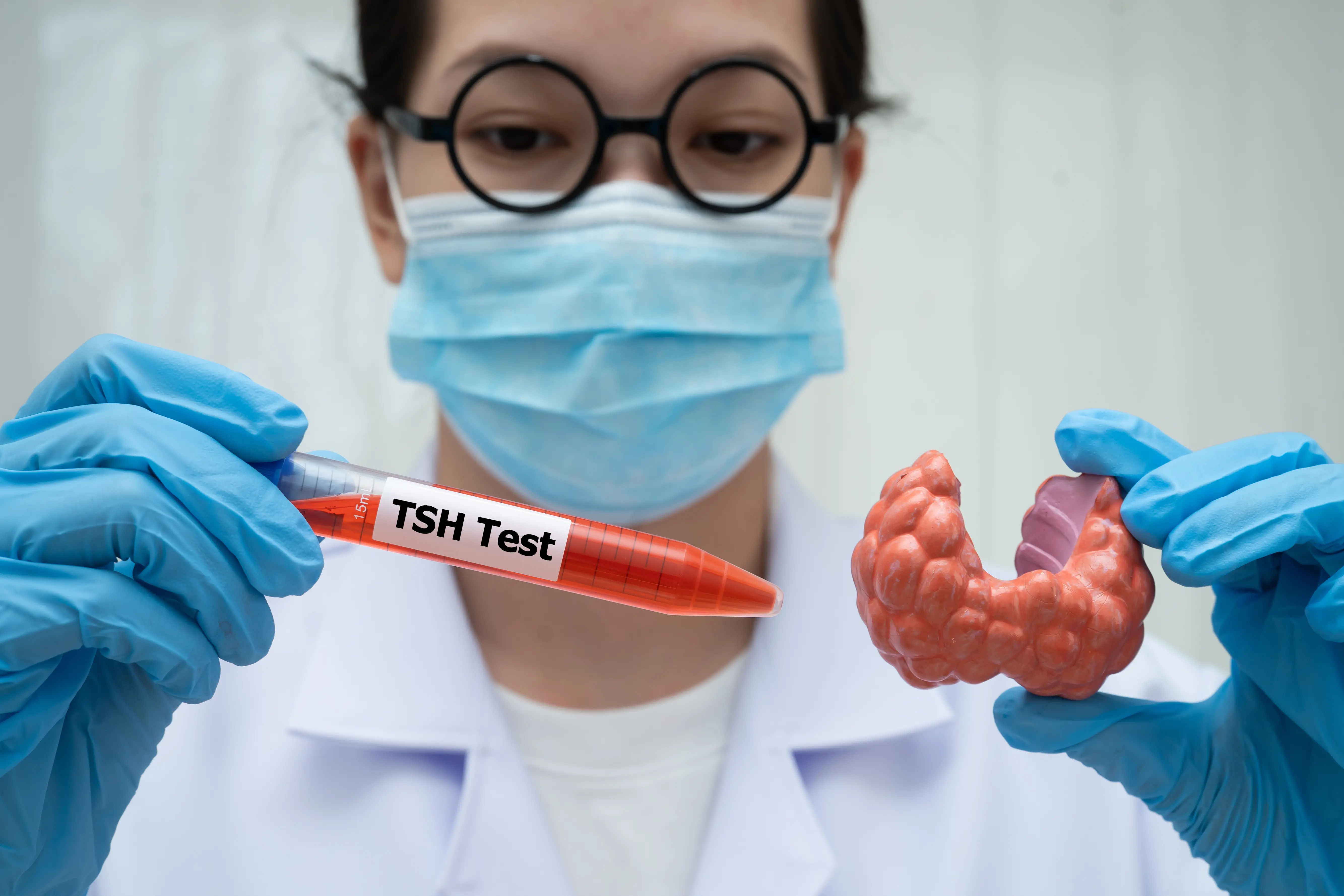Signs Of Vitamin D Deficiency
Learn to recognize the common signs of vitamin D deficiency, its health impacts, and ways to maintain optimal vitamin D levels for overall well-being.

Written by Dr. Vasanthasree Nair
Reviewed by Dr. Dhankecha Mayank Dineshbhai MBBS
Last updated on 13th Jan, 2026
.webp?tr=q-80,f-webp,w-350,dpr-2,c-at_max 700w)
Introduction
Often called the "sunshine vitamin," Vitamin D is a crucial nutrient that acts like a hormone in your body, influencing everything from bone health to mood. Despite its importance, vitamin D deficiency is a global health issue, affecting an estimated 1 billion people worldwide. The tricky part? Its symptoms are often vague and easily mistaken for other conditions, leading many to overlook a significant underlying problem. This article will illuminate the top 10 signs of vitamin D deficiency, explaining the science behind each symptom and providing actionable advice on what to do next. Understanding these signals is your first step toward better health and vitality.
Why Vitamin D is So Critical for Your Health
Vitamin D is far more than just a bone-building nutrient. It's a prohormone that your body converts into its active form to perform several vital functions. Its primary role is to facilitate the absorption of calcium and phosphorus from your gut, which is essential for maintaining strong and healthy bones. Without sufficient Vitamin D, your body cannot absorb enough calcium, leading it to leach calcium from your skeleton, which weakens your bones.
Beyond skeletal health, Vitamin D receptors are found in almost every tissue in your body, including the brain, heart, muscles, and immune cells. This widespread presence means it plays a key role in:
Immune System Regulation: Modulating innate and adaptive immune responses.
Mood and Brain Function: Influencing the production of serotonin, a brain hormone associated with mood.
Muscle Function: Supporting muscle strength and reducing the risk of falls.
Reducing Inflammation: Playing a role in controlling inflammation linked to many chronic diseases.
Consult a General Physician for the best advice
The Top 10 Signs and Symptoms of Vitamin D Deficiency
Spotting these signs early can help you address vitamin D deficiency before it affects your overall health.
1. Constant Fatigue and Tiredness
Feeling chronically tired can have many causes, but vitamin D deficiency is a frequently overlooked culprit. Studies have shown a strong correlation between low blood levels of Vitamin D and feelings of exhaustion. In one case study, a woman presenting with chronic daytime fatigue and headaches was found to have a Vitamin D level of just 5.9 ng/ml (severely deficient). After supplementation, her level rose to 39 ng/ml, and her symptoms resolved completely.
2. Bone and Back Pain
Vitamin D is critical for calcium absorption. Aches and pains in your bones and lower back may be a sign of inadequate vitamin D levels. Large observational studies have found a relationship between deficiency and chronic lower back pain. The pain can range from a dull ache to severe discomfort, often exacerbated by movement or pressure.
3. Frequent Illnesses and Infections
One of vitamin D's most important roles is supporting your immune system so you can fight off viruses and bacteria. If you find yourself constantly catching colds, the flu, or battling infections, a deficiency could be to blame. Research concluded that Vitamin D supplementation helps protect against acute respiratory infections.
4. Depression and Low Mood
There's a strong link between low vitamin D and mood disorders like depression, particularly in older adults. Vitamin D receptors are present in areas of the brain linked to depression. Seasonal Affective Disorder (SAD), depression that occurs during winter months with less sunlight, is also strongly associated with low Vitamin D levels.
5. Impaired Wound Healing
Slow healing of wounds after surgery or injury can be a sign that your vitamin D levels are too low. Vitamin D increases the production of compounds that are crucial for forming new skin as part of the wound-healing process. It also plays a role in controlling inflammation and fighting infection, which are essential for proper healing.
6. Bone Loss
Vitamin D plays a critical role in calcium absorption and bone metabolism. A diagnosis of osteopenia (the precursor to osteoporosis) or osteoporosis itself is a major red flag for potential deficiency. Low bone mineral density is an indication that your bones have lost calcium and other minerals.
7. Hair Loss
While often attributed to stress, severe hair loss can be a symptom of a nutrient deficiency. Alopecia areata, an autoimmune condition characterized by severe hair loss, has been linked to rickets, a disease caused by vitamin D deficiency that leads to soft bones in children. Low vitamin D levels are also associated with female pattern hair loss.
8. Muscle Pain
The causes of muscle pain are often difficult to pinpoint, but evidence suggests vitamin D deficiency is a potential cause. Receptors for Vitamin D are present in nerve cells called nociceptors, which sense pain. Some studies have shown that high-dose vitamin D supplementation can reduce various types of pain in deficient individuals.
9. Weight Gain
While not a direct cause, there is a correlation between obesity and vitamin D deficiency. Some theories suggest that vitamin D is fat-soluble, so individuals with higher body fat may "sequester" it in their fat tissues, reducing its bioavailability. The resulting low levels may then contribute to difficulties with weight management.
10. Anxiety and Sleep Issues
Emerging research points to a connection between vitamin D deficiency and increased anxiety, as well as poor sleep quality. Vitamin D is involved in the regulation of neurotransmitters and neuroprotective factors, and its deficiency may disrupt sleep patterns and contribute to feelings of nervousness and restlessness.
Who is Most at Risk for Vitamin D Deficiency?
Certain populations are more susceptible to deficiency. Key risk factors include:
Older Adults: Skin's ability to synthesize Vitamin D decreases with age.
People with Darker Skin: Higher melanin levels reduce the skin's ability to produce Vitamin D from sunlight.
Those with Limited Sun Exposure: People who are homebound, live in northern latitudes, wear long robes/head coverings, or use strict sunscreen.
Individuals with Certain Conditions: Crohn's disease, celiac disease, and kidney or liver diseases impair absorption or conversion of Vitamin D.
Breastfed Infants: Human milk is a poor source of vitamin D.
How is a Vitamin D Deficiency Diagnosed?
If you identify with several symptoms, the next step is to see your doctor. Diagnosis is made through a simple 25-hydroxy vitamin D blood test. Here’s how to interpret the results:
Sufficient: 20 ng/mL or above (50 nmol/L)
Insufficient: 12–20 ng/mL (30–50 nmol/L)
Deficient: Less than 12 ng/mL (30 nmol/L)
Many experts argue that optimal levels for health are actually higher, around 30-50 ng/mL.
Get Your Health Assessed
Treatment and Prevention: Boosting Your Vitamin D Levels
Addressing a deficiency typically involves a three-pronged approach under medical guidance:
1. Sun Exposure: Aim for 10-30 minutes of midday sun several times a week, depending on your skin sensitivity and location. Expose arms, legs, or back without sunscreen.
2. Dietary Sources: Incorporate more fatty fish (salmon, mackerel, tuna), fortified dairy and plant milks, egg yolks, and beef liver into your diet.
3. Supplementation: This is often necessary to correct a deficiency. Your doctor can recommend the appropriate dosage, which may be a high weekly dose initially, followed by a daily maintenance dose.
Conclusion: Listen to Your Body's Signals
Vitamin D deficiency is a silent epidemic with far-reaching consequences for your health. The signs, from unshakable fatigue and low mood to frequent colds and aching bones, are your body's way of signalling that a crucial nutrient is missing. While these symptoms can be subtle, recognizing them is the first step toward reclaiming your vitality. Don't dismiss persistent, vague health complaints as just "stress" or "ageing." If this article resonated with you, take action. Speak with your healthcare provider about getting a simple blood test. It’s a small step that can lead to a significant improvement in your overall health, energy, and quality of life.
Consult a General Physician for the best advice
Consult a General Physician for the best advice

Dr. Tanmaya Kumar Sahu
General Physician/ Internal Medicine Specialist
12 Years • MBBS, MD ( Internal Medicine )
Bhubaneswar
Apollo Hospitals Old Sainik School Road, Bhubaneswar
(25+ Patients)

Dr. Pinaki Mukhopadhyay
General Physician/ Internal Medicine Specialist
32 Years • MBBS
Kolkata
MCR SUPER SPECIALITY POLY CLINIC & PATHOLOGY, Kolkata
(25+ Patients)

Dr. Imtiyaz Khan
General Physician/ Internal Medicine Specialist
6 Years • MBBS
Bengaluru
Apollo Clinic, Sarjapur Road, Bengaluru

Dr. Shiv Krishna Mitra
General Practitioner
15 Years • MBBS GEN. MED. PGDRM, MCH
Kolkata
Samaritan Clinic, Kolkata

Dr. Swaroopa Rani
General Physician/ Internal Medicine Specialist
9 Years • MBBS, MD (Internal Medicine)
Bengaluru
Apollo Medical Center, Marathahalli, Bengaluru





